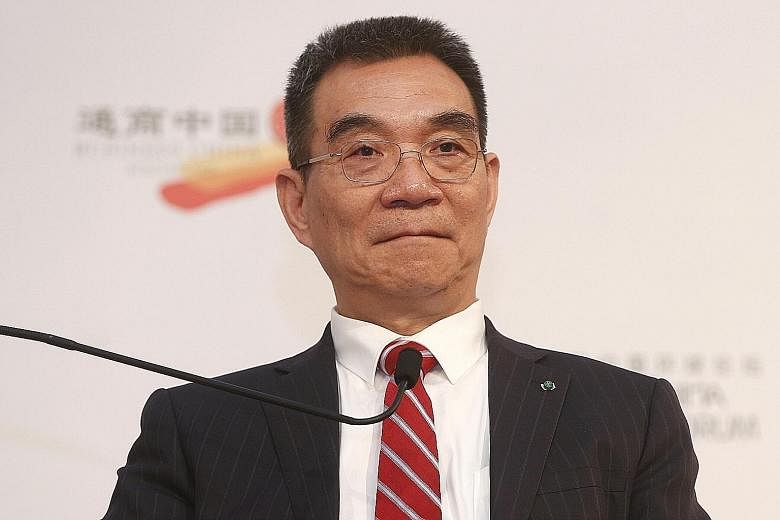Investment will remain a significant part of China's growth strategy, said a Peking University dean yesterday.
Professor Justin Lin, from the National School of Development of Peking University, said increasing investment will help China move up the value chain. This would help the country generate the income necessary for consumption to increase and drive economic growth.
He was speaking at the opening plenary session at the FutureChina Global Forum 2015 yesterday. The two-day forum is attended by business executives, government officials and academic experts on China-related issues.
Prof Lin said for consumption to increase, net household income first had to rise. For the latter to happen, labour productivity had to increase. "The way to improve labour productivity continuously is to have technological innovation on the one hand and industrial upgrading on the other hand. And (these) require investment," he added.
He noted there were still many investment opportunities in China. Investment was required for urbanistion, moving up the value chain, infrastructure development and environment protection, he said.
His comments follow debates on the extent to which China should rely on investment for growth. At the moment, oversupply is said to exist in the real estate and steel sectors.
Prof Lin argued that China's growth had decelerated in recent years mainly because of an external and cyclical slowdown, as opposed to "structural problems in China".
He noted it was not just China's growth which had fallen, but also that of Singapore and other emerging economies. This occurred because of the slow recovery of developed economies after the Global Financial Crisis, he said.
Dr Mari Pangestu, professor of international economics at the University of Indonesia, said at the plenary session that China moving up the value chain and into services could reconfigure global trade and investment patterns.
For instance, when China acquired the means of manufacturing higher value goods, which it used to import, exporters of these goods would have to find new markets for their products or supply different products to China.
China might also use its market size to become a hub in some sectors and this would further reconfigure economic relationships, she said. Nations would then have to figure out what to supply to this new economic structure.
"That (would bring about) another destruction, if you like, in the way trade and investment happens," she said.

